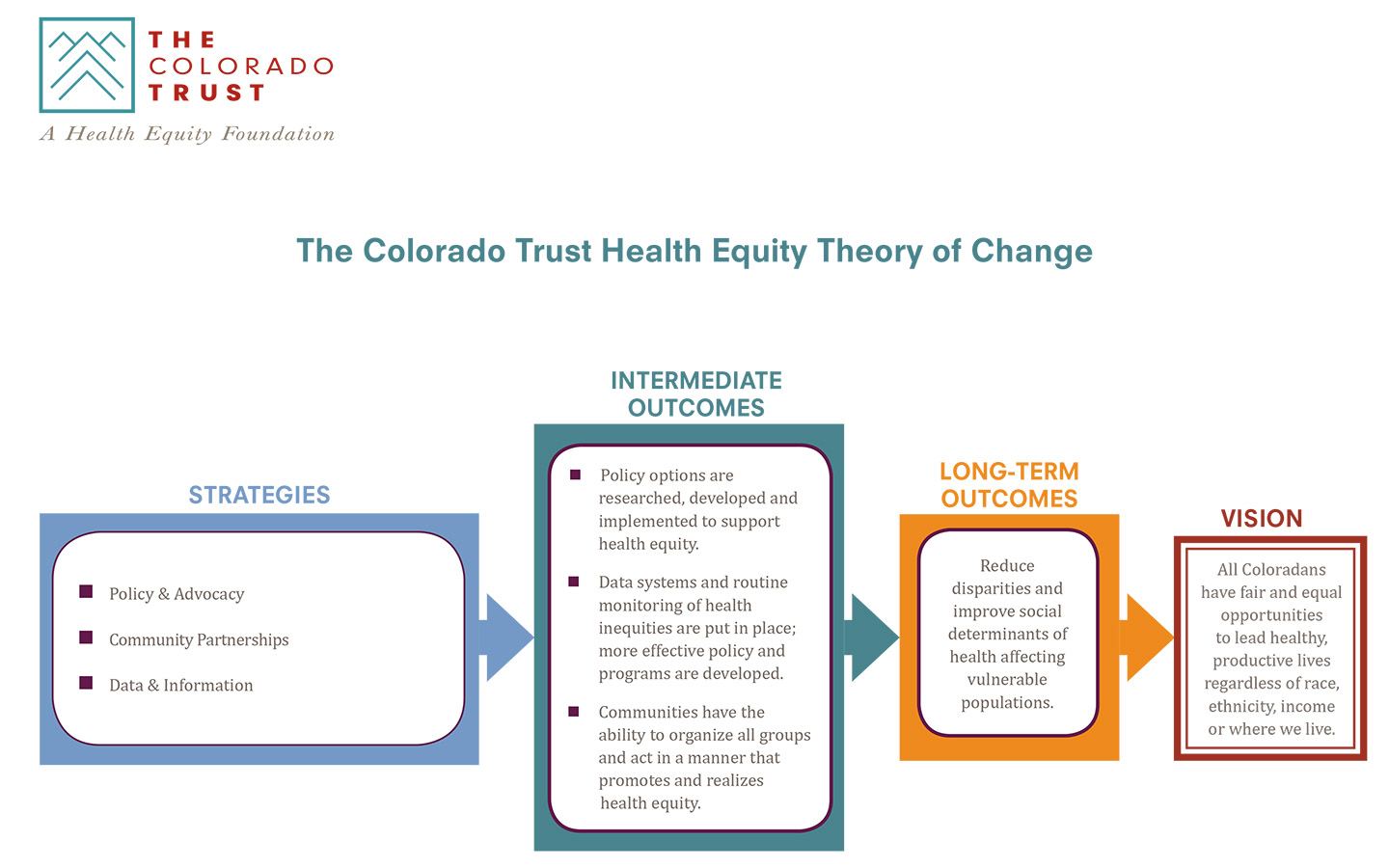Creating Change
The Trust uses a theory of change to guide our grantmaking. Often referred to as a roadmap for change, a theory of change illustrates clear outcomes that describe the changes one expects to happen to achieve the intended goal.
To help us in achieving our health equity vision, we looked to the World Health Organization’s (WHO) vast body of knowledge for guidance. WHO research has found that underlying causes of health inequities include disparities in education, income, built environment, regional economic stability, and social and community context (family structure, social connectedness of neighbors, discrimination and racism), among others. These are known as the social determinants of health, and addressing them is necessary to making progress toward health equity.
Studies also show that to address health inequalities, certain underlying, intermediate outcomes must be met. While it is beyond the scope of The Trust to address all such outcomes, we have selected three we believe must be met to achieve our unique vision for Colorado. The graphic below illustrates our health equity theory of change:

Policy options are researched, developed and implemented to support health equity.
The Trust has the opportunity to shape policies and practices to address social, economic and environmental determinants and challenges. Our history of working toward advocacy for policy change has resulted in some significant wins for Colorado. Using what we have learned from these efforts, coupled with a laser-like focus on achieving health equity, we believe we will be able to influence policies to eliminate health disparities.
Data systems and routine monitoring of health inequities are put in place, so more effective policy and programs can be developed.
Data is essential to our work. Without monitoring the inequities in health outcomes and social determinants, we cannot inform policy makers, evaluate implementation or build accountability. We strive for the most disaggregated data possible, as the more “local” the data, the more useful they will be in guiding work the community level. Prioritizing quality data is vital; we believe good data can catalyze action and must be widely available.
Communities have the ability to organize all groups and act in a manner that promotes and realizes health equity.
Research conducted around the world shows that change cannot and will not happen unless all people have the freedom to exercise control over their lives, including their health. We believe communities must have the freedom to come together to collectively identify the problems they believe are preventing health equity the most. As a funder, The Trust must allow Colorado communities to lead the decision-making process toward controlling their own futures. Empowerment is a core tenant of good health. Through promoting a community-based process, focusing on the social determinants at the most local level, health inequities can begin to be addressed.
These three intermediate outcomes are tightly woven, and one cannot be achieved without addressing the others. The Trust is addressing all three on our journey to achieve health equity for all Coloradans.
Our Approach to Learning
Read more about The Trust’s approach to learning.
Evaluation Findings
Learn more about The Trust’s evaluation findings.

